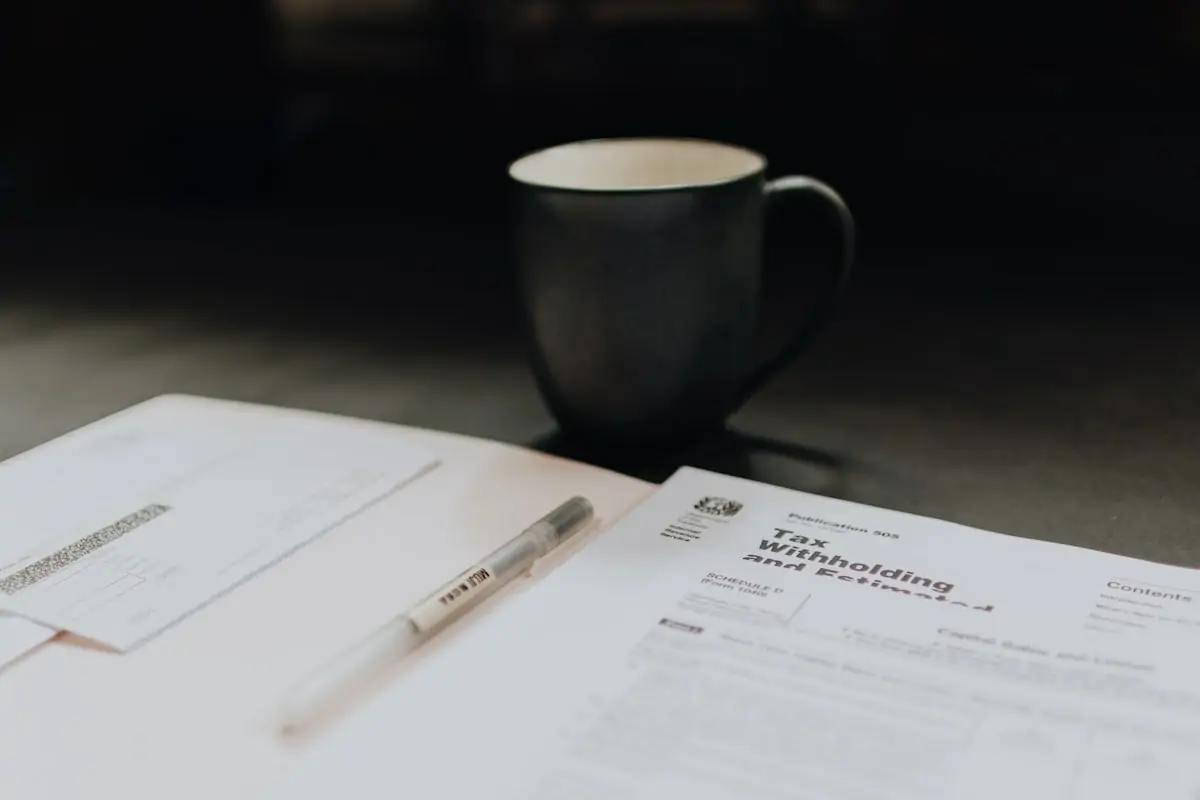
Calculating tax on dividends: A guide & example
7 Aug 2020A dividend is a payment made to a shareholder from a company's profits after corporation tax has been accounted for. For businesses that operate as limited companies, dividends are the most tax-efficient way of withdrawing money from your own enterprise.
Who can receive dividend payments?
Anyone who owns a dividend share or shares in the company can receive dividend payments. Shareholders can include directors, employees, relatives, or other outside investors in the company.
Dividend guidelines
When someone buys stocks in a business, they are sometimes paid in dividends. Only dividend stocks pay in dividends - this may sound obvious, but there are various stock types.
The most common type of dividend is a cash dividend. Others include:
-
Stock dividends
-
Special dividends
-
Dividend Reinvestment Programmes
-
Preferred dividends
As previously stated, dividends are paid to shareholders from a company's profits. Therefore, a company can only pay a dividend if it has turned a profit. Furthermore, any dividends that a company does pay out must not exceed its available profits for the current financial year, and previous ones. It is, in fact, illegal for a company to pay a dividend if its after-tax profits are not sufficient to cover the dividend amount.
Profit refers to any money a company has left over after meeting all of its business expenses and outstanding taxes, such as Corporation Tax and VAT.
Once these liabilities and expenses have been paid, a profitable limited company can then distribute any remaining earnings to its shareholders via dividends.
Any profits retained within a limited company can be made up of profits made in the current or previous tax years. For example, suppose a company chooses not to pay out any dividends from profits in any one accounting period. In that case, those profits will be carried forward into the following years and can be distributed at a later date.
It's important to note that dividends are not considered business expenses when it comes to calculating a company's Corporation Tax.
How are dividends issued?
In order for a dividend to be correctly issued, a meeting between all directors must be held to agree and 'declare' the dividend. A record must be kept of the meeting, including the minutes.
Typically, dividend amounts are determined by the percentage of company shares owned by each shareholder. For each dividend that a company pays out, a dividend voucher must be issued and include the following information:
-
Name of company
-
Date of dividend payment
-
Names of shareholders receiving the dividend
-
Amount of the dividend
A copy must go to all recipients, and one should be retained within company records.
How often are dividends paid?
As a director, you are allowed to pay yourself dividends as often as you like, so long as you follow the regulations and have them declared in a directors' meeting (even if you're the only director).
Most companies pay out dividends quarterly, though some opt to pay them either annually or bi-annually.
How do dividends optimise your tax efficiency?
The more tax-efficient a company, the more money it can earn because less tax is owed. This is not the same as tax evasion, which is to illegally avoid the payment of tax. Instead, to be tax-efficient is to set a company up in such a way that the least amount of tax is owing by taking advantage of low-tax tools and tax-free allowances, while keeping all operations and transactions legal and above board.
Many directors of limited companies optimise their tax efficiency by paying themselves a low salary in combination with dividends. The salary is paid to the director like any other employed salary, but the dividends are taxed at a lower rate than the standard income tax rates.
There is also no requirement to pay National Insurance contributions on profits received via dividends. This is because the company itself has already paid Corporation Tax on these profits, leaving the dividend tax rates to fall between Income and Corporation Tax rates.
Tax on dividends
While the company is not required to pay tax on any dividend payments issued, the shareholder recipient may have to, which will be determined by their personal financial circumstances. However, there is no tax due when dividends are received from shares that are held within an Individual Savings Account (ISA).
Receiving dividends means that you will be required to complete an individual Self Assessment Tax Return.
Whether the dividends have come from your own limited company or another company in which you hold shares, you will need to declare the total dividend income you have received on your tax return.
The tax rate paid on dividends is based on the recipient's total income across all sources.
UK tax-free dividend allowance
As well as a tax-free personal allowance, there is a tax-free dividend allowance for dividend income.
The UK's tax-free dividend allowance for both the 2021/22 and 2022/23 tax years is £2,000. This allowance is in addition to the tax-free personal allowance of £12,570 for the 2022/23 tax year.
Therefore, if the dividends received by an individual exceed both their personal and dividend allowance combined, tax will be payable on the portion of earnings that is above that combined amount.
The amount of tax payable on any income derived from dividends will be based on the individual's tax band (or 'marginal rate').
The dividend tax rates and thresholds for 2022/23 are as follows:
|
2022/23 Thresholds |
2022/23 Dividend Tax Rate |
|
|
Personal Allowance |
£0 - £12,570 |
0% |
|
Basic rate for tax-payers |
£12,570 - £50,270 |
8.75% on dividends earned above dividend allowance (8.75% on dividend earnings between £14,570 - £50,270) |
|
Higher rate for tax-payers |
£50,271 - £150,000 |
33.75% |
|
Additional rate for tax-payers |
£150,001 upwards |
39.35% |
Dividend tax calculation example
The example below demonstrates how a limited company director can achieve maximum tax efficiency by setting their salary at both the Personal Allowance threshold and the National Insurance Contribution Threshold and boosting their income further with dividends.
So long as a limited company is eligible to claim the Employment Allowance, the optimum salary paid to a director would be the same as the Personal Allowance of £12,570. However, if this is not the case, the optimal salary paid for the 2022/23 tax year would be £9,100, as no NICs are payable below the ‘Secondary Threshold.’
Following the 2022 Spring Statement by the Chancellor, Rishi Sunak, the NIC threshold is set to be brought in line with the income tax threshold of £12,570 from July 2022.
|
2022/23 |
|
|
Salary (set at Personal Allowance/NIC Threshold) |
£12,570 |
|
Dividends received |
£48,350 |
|
Total income |
£60,920 |
|
Personal allowance (tax-free earnings) |
(£12,570) |
|
Taxable income |
£48,350 |
|
Dividend allowance (tax-free earnings) |
(£2,000) |
|
Taxable dividend income (taxed at 8.75%) |
£46,350 |
|
Income tax payable |
£4,055.60 |
|
Income after tax |
£42,294.40 |
As a director, should I pay myself a salary or dividends?
Presuming you are both a director and a shareholder of a limited company, it may be most tax-efficient to pay yourself a combination of salary and dividend payments.
Ultimately, there is no minimum wage threshold applicable to directors, so you are free to pay yourself as much or as little as you like. However, suppose this is your sole source of income. In that case, the most tax-savvy approach is to pay yourself a salary that is equal to the National Insurance Contributions threshold (as of 2022/23, this is the same as the Personal Allowance threshold) and pay any additional income to yourself via dividends.
If you receive other sources of income, there is more to take into account, and it may be prudent to consult with your accountant.
If you’d like any tax advice, or if you would like a qualified and experienced accountant to look after the books for your business, get in touch with us today on 0207 043 4000 or info@accountsandlegal.co.uk.
You can also get an instant accountancy quote here.





















